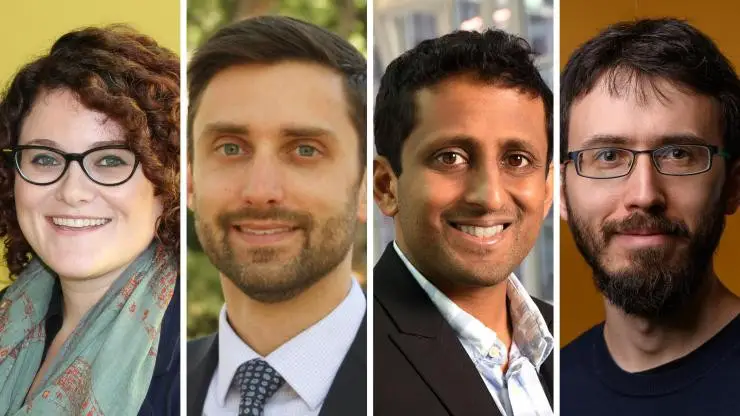Four Georgia Tech and Emory University professors have been named Alfred P. Sloan Foundation fellows for 2019, allowing them to further their future research.
The two-year, $70,000 fellowship is awarded to early-career scholars who are considered some of the most promising researchers in their respective fields.
Georgia Tech’s Eva Dyer, an assistant professor in the Wallace H. Coulter Department of Biomedical Engineering and Matthew McDowell, an assistant professor in the George W. Woodruff School of Mechanical Engineering, were selected as Sloan fellows.
Chethan Pandarinath, an assistant professor in the Wallace H. Coulter Department of Biomedical Engineering, and Konstantin Tikhomirov, an assistant professor in the School of Mathematics, were selected as fellows from Emory University.
“Sloan Research Fellows are the best young scientists working today,” Adam F. Falk, president of the Sloan Foundation, said. “Sloan Fellows stand out for their creativity, for their hard work, for the importance of the issues they tackle and the energy and innovation with which they tackle them. To be a Sloan Fellow is to be in the vanguard of 21st-century science.”
The fellowship is open to scholars in eight scientific and technical fields, and allows awardees to use the funds to advance their academic work.
12 Michigan State Faculty Members Selected for STEM Fellowship



